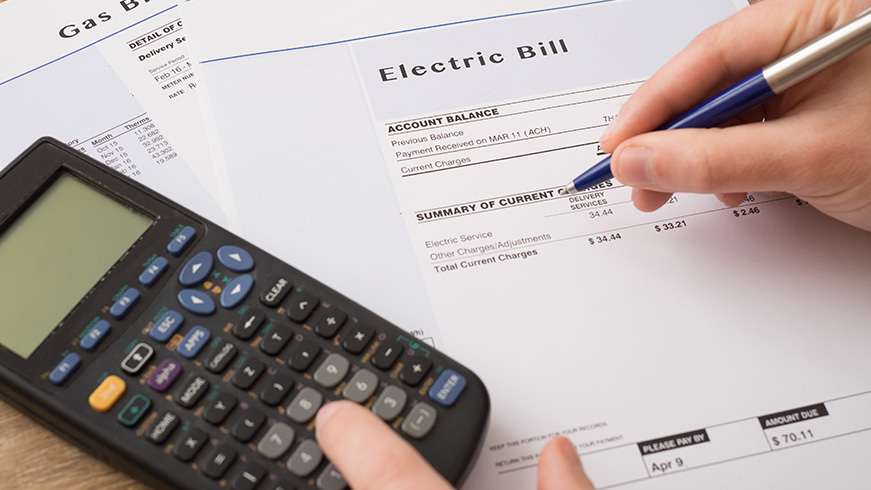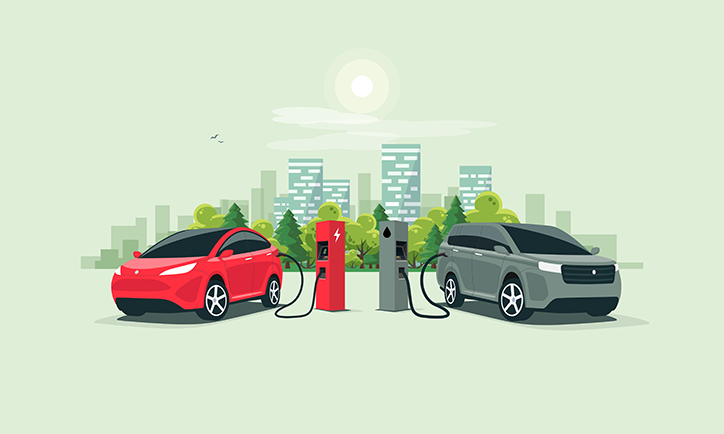When it comes to saving on your electric bill, small lifestyle changes can make a big difference. So, it’s no wonder that countless energy-saving suggestions have worked their way into common knowledge. But which ones can actually help lower your electric bill, and which ones are more of a hassle than they’re worth?
1. You can save energy by cooking with your microwave.
FACT
Cooking only makes up for 2% of the average household’s electric bill, but using the microwave as opposed to the oven or stove can still cut out a large percentage of that cost. Microwaves are quicker, use less energy, and are especially useful in the summer because they don’t contribute extra heat to the kitchen, forcing your air conditioner to work harder than it has to. Not only does the microwave save time, but microwaved fruits and vegetables also retain more nutrients than traditionally cooked foods. While meals cooked in a microwave might not taste as good, it’s easy to use the microwave instead of the stove top for small tasks like heating frozen vegetables or melting butter.
2. It’s cheaper to run appliances at night rather than during the day.
MOSTLY FICTION
If you’re enrolled in a program that gives you discounted electricity at off-peak hours, it’s advantageous to do the bulk of your energy-using activities during that time (which is often at night or on weekends). Most people, however, receive their energy at standard rates, in which case it costs the same no matter when you use it. Your appliances will use the same amount of electricity during the day as they do at night. So unless you have a discount on off-peak hours, waiting until after dark to do laundry is a good excuse to put it off for later but isn’t good for much else.
3. It’s more efficient to use electric space heaters in occupied rooms than to turn on the heating system for the whole house.
FICTION
Electric heaters are actually one of the least efficient ways to heat a space. They use so much energy that it would be cheaper to heat the entire house with your heating system than to warm one or two rooms with an electric heater. If you’re concerned about a large heating bill, check out some of these tips for saving energy in the winter.
4. You should close the vents in unoccupied rooms while the heat is on to conserve energy.
FICTION
While this tip seems to make logical sense, it doesn’t take into account how your heating system actually works. Furnaces gauge how much heat should be produced based on the ductwork, not on the actual rooms in the house. Closing the vents in unoccupied rooms won’t make the furnace produce less heat because the ductwork remains the same. In fact, it will actually increase the air pressure and throw the whole system off balance, making the furnace work harder than it needs to.
5. You can save water by washing your dishes by hand instead of running them through the dishwasher.
FICTION
Doing a load of dishes by hand actually uses more hot water than using the dishwasher, especially now that most household appliances have energy efficiency settings. If you do wash your dishes by hand, it’s better to fill up a tub with hot, soapy water rather than running the faucet the entire time.
6. It’s better to keep the doors inside your home closed when you have the heat on.
FACT
Your heating system operates through convection current. This means that air cycles through the room, rising when it’s hot and sinking as it cools. The cool air by the floor is then reheated, beginning the cycle again. Closing the door keeps this cycle of heated air within a contained space, which is more efficient than dispersing it throughout the house.
7. Using screensavers on your computer saves energy.
FICTION
While a screensaver may seem similar to the sleep setting on your computer, it’s actually a separate program that is using energy constantly while it runs. If you’re taking a short break from your computer, it’s better to let it go to sleep or turn off the monitor (if it’s a desktop). Also, if you’re leaving the computer overnight, go ahead and shut it down completely because even the sleep mode uses a substantial amount of energy.
8. Frequently turning electronics on and off uses more energy than just keeping them turned on.
FICTION
This may have been true back when computers were huge, unwieldy devices that used enormous amounts of energy to power up, but those days are long gone and energy efficiency has become a top concern for the industry. The energy used to power on a device is minimal compared to the constant drain it uses while in use, even in sleep mode. For these reasons, it’s better for your electric bill to just power off your electronics when you’re done using them.
9. Using the fireplace is a good way to stay warm in the winter.
FICTION
In order to safely light a fire, you must also open the damper in your chimney so that smoke and toxic gases can escape. Unfortunately, this also means that cold air from outside will enter your home. While it may feel nice to cozy up by the fire, the rest of your house will actually become colder, and your heating system will have to work extra hard to compensate for what is essentially an open window letting heat out of the house.
10. Keeping the heat on low while you’re away from home instead of turning it off will save energy.
IT’S COMPLICATED
Experts have several different opinions on this issue. The general consensus is that it’s best to turn your heating system off when you’re away from home for long periods of time. However, one opposing argument is that turning the heat off causes condensation to collect in the walls. Because damp material is a better conductor than dry material, this condensation will allow heat to escape from your home faster than if you had left the heat running on low the entire time. This advice produces mixed results that depend on the climate, the humidity, the types of materials your home is made of, and the thickness of your walls. If you’re concerned about wasting heat, go ahead and give both options a try to see what works best for your home.
After debunking some of these energy-saving myths, you should be more equipped than ever to save money on your next electric bill.



